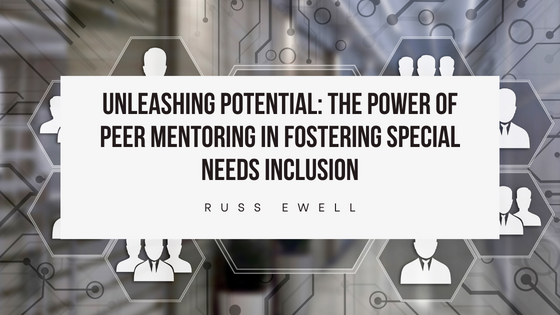In the dynamic tapestry of education, fostering an inclusive environment is not just a goal; it’s an imperative. Inclusion isn’t merely about ensuring diverse individuals are present in classrooms; it’s about actively cultivating a sense of belonging and empowerment for all. While educators play a pivotal role in shaping these environments, there’s another potent force often overlooked: peer mentoring.
Peer mentoring harnesses the power of students themselves to support one another in their educational journey. It’s a symbiotic relationship where both mentor and mentee grow and learn together. What makes peer mentoring particularly impactful is its ability to break down barriers and create a sense of community among students.
One of the most significant benefits of peer mentoring is its ability to promote empathy and understanding. When students engage in mentoring relationships, they gain insights into each other’s experiences, challenges, and perspectives. This fosters a deeper sense of empathy and cultivates a culture of respect and acceptance. Inclusion efforts thrive in environments where students actively seek to understand and support one another.
Moreover, peer mentoring empowers students to take ownership of their learning and development. By assuming the role of mentors, students develop leadership skills, boost their confidence, and enhance their communication abilities. They learn to articulate their thoughts, provide constructive feedback, and offer support in a meaningful way. This not only benefits the mentees but also fosters personal growth and self-efficacy among mentors.
Furthermore, peer mentoring creates a ripple effect of positive change within the school community. As mentees progress and grow, they often become mentors themselves, perpetuating a cycle of support and empowerment. This not only expands the reach of inclusion efforts but also fosters a culture where every student feels valued and supported.
In addition to academic support, peer mentoring can address social and emotional needs, particularly for marginalized or vulnerable students. Mentors can serve as role models, offering guidance, encouragement, and a listening ear to those facing various challenges. This personalized support can make a significant difference in a student’s overall well-being and sense of belonging.
Implementing a peer mentoring program requires thoughtful planning and support from educators and administrators. Clear guidelines, training sessions, and ongoing supervision are essential to ensure the effectiveness and sustainability of such initiatives. Additionally, creating opportunities for mentor-mentee pairs to engage in structured activities, discussions, and reflection can enrich their experience and deepen their connections.
Peer mentoring is a powerful tool in the quest for inclusion in education. By empowering students to support each other, we not only cultivate a sense of belonging but also nurture empathy, leadership, and personal growth. As we continue to strive for inclusive learning environments, let us recognize and harness the transformative power of peer mentoring in unlocking the potential of every student. Together, we can create a future where every voice is heard, valued, and celebrated.

